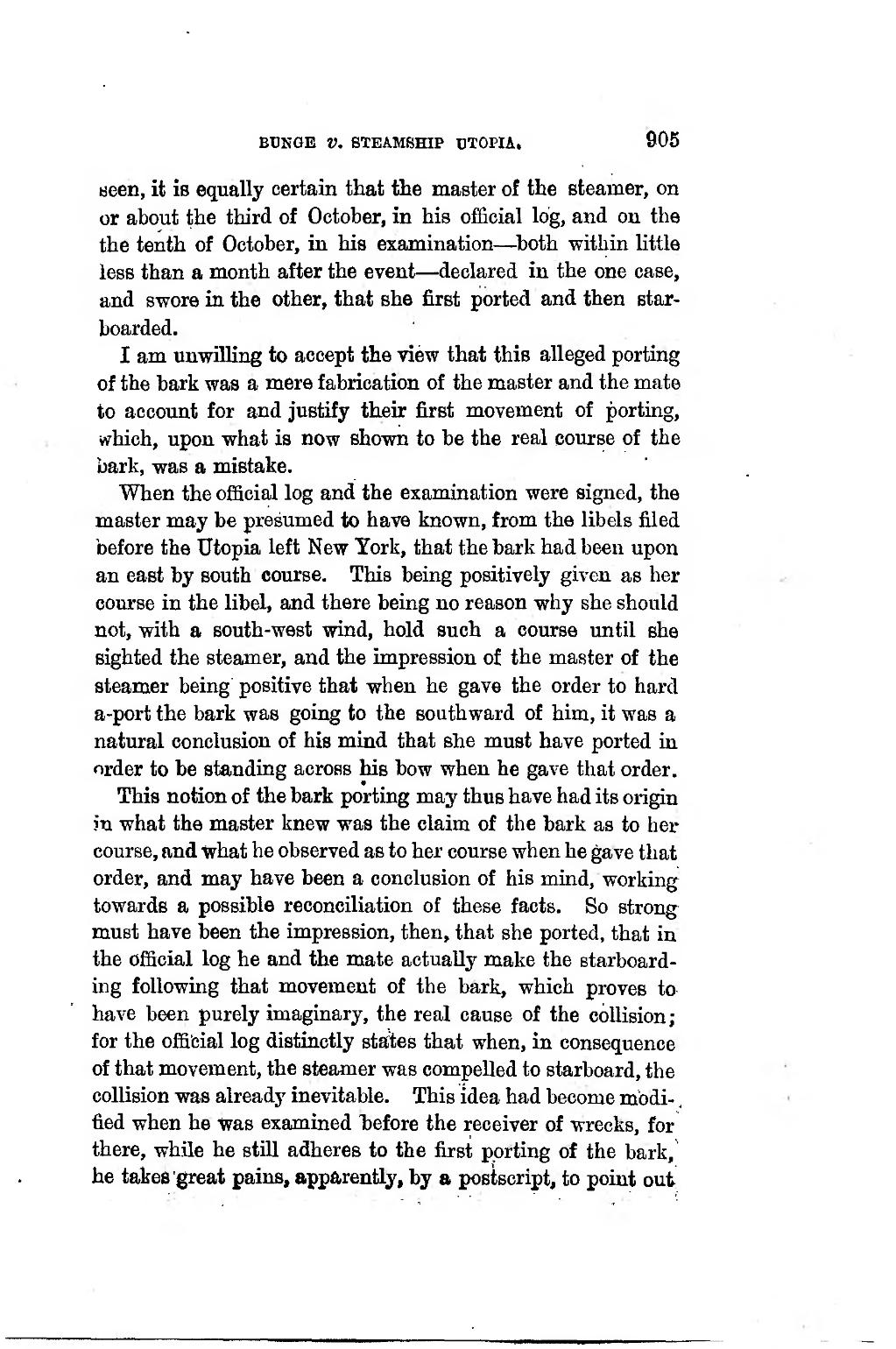BUNGE V. STEAMSHIP UTOPIA, 905 �been, it is equally certain that the master of the steamer, on or about the third of October, in his officiai log, and on the the tenth of October, in his examination — both within little iess than a month after the event — declared in the one case, and swore in the other, that she first ported and then star- boarded. �I am unmlling to accept the view that this alleged porting of the bark was a mere fabrication of the master and the mate to account for and justify their first movement of porting, which, upon what is now shown to be the real course of the bark, was a mistake. �When the of&eial log and the examination were signed, the master may be presumed to have known, from the libels filed before the Utopia left New York, that the bark had been upon an east by south course. This being positively given as her course in the libel, and there being no reason why she should uot, with a south-west wind, hold such a course until she sighted the steamer, and the impression of the master of the steamer being positive that when he gave the order to hard a-port the bark was going to the southward of him, it was a natural conclusion of his mind that she must have ported in order to be standing across his bow when he gave that order. �This notion of the bark porting may thus have had its origin in what the master knew was the claim of the bark as to her course, and what he observed as to her course when he gave that order, and may have been a conclusion of his mind, working towards a possible reconciliation of these facts. So strong must bave been the impression, then, that she ported, that in the officiai log he and the mate actually make the starboard- ing foUowing that movement of the bark, which proves to have been purely imaginary, the real cause of the collision; for the offibial log distinctly states that when, in consequence of that movement, the stea-mer was compelled to starboard, the collision was already inevitable. This idea had become mbdi- fied when he was examined before the receiver of wreeks, for there, while he still adheres to the first porting of the bark, he takes great pains, apparently, by a postscript, to point oui ��� �
